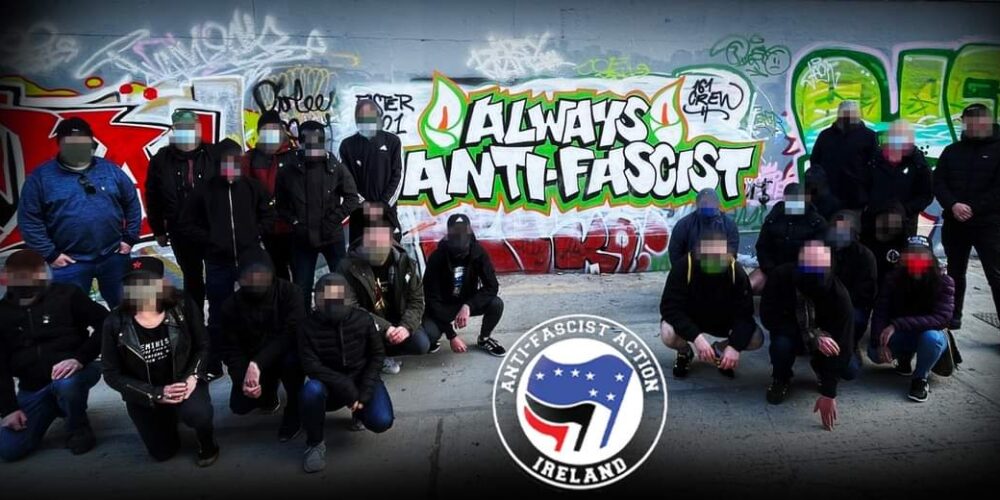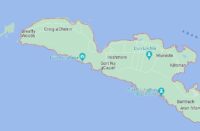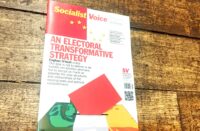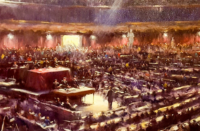Earlier this year, I wrote in Socialist Voice on the need for the Party to consider resurrecting the concept and approach of the Popular Front as necessary at this time, but to do so in a new context and not by merely replicating the past. I argued that this is consistent with, and developing from, our Congress political programme.
In doing so, I suggested that “this time a Popular Front needs to be more explicitly eco-socialist and anti-capitalist because of the existential risks faced. So, this front would seek to pull together left-wing and environmental groups under one programme here in Ireland to maximise our ability to win the hearts and minds of our class” and then outlined a five-point programme that might form the political basis of this Front and of unity with like-minded forces:
- Neutrality and new global alliances
- Substantive equality (housing and healthcare)
- Climate, ecology, and the reorientation of growth
- Working conditions and rebalancing power
- United Ireland and a new democracy
So, this time the Popular Front is not merely focussed on the defence of bourgeois democracy against fascism but more focussed on the existential threat of ecological collapse that we face whether this be through the rule of fascism or liberal democracy. The very real threat to humanity and our animal friends is the same regardless of Capital’s form of political governance. The groups involved in this Front must understand and agree on this. However, the programme must also relate to the very low levels of class consciousness and high levels of material deprivation and need that exist in many of our communities that are combining to the form the basis of the current rise of the far right.
This piece now considers a number of points on ideology and then how one might approach and structure this Front. Ideology, broadly defined as a system of ideas and ideals which forms the basis of economic and political theory and policy, is important. Post-modernism, and its lackeys, has attempted to make dirty words of ideology and philosophical understanding. In fact, ideology is vital and crucial. As Helena Sheehan, has rightly said, the ecological existential crisis facing humanity “cannot be understood properly without an integrative philosophy of nature and science and a political economy of capitalism.” She argues that that philosophy is Marxism and there is a need to resurrect the concept of a grand narrative explaining events on an historical basis.
So, “broad left unity”, or pulling together anyone who is described as “left” (which often just means liberal) or opposed to fascism, etc., should not be the basis of a new Popular Front. In fact it must be more carefully defined, with some uniting, common philosophical underpinnings among the participant groups. This is to ensure it is eco-socialist and anti-capitalist, can explain the world around us and build a programme on the above key points that presents a way out of poverty and hopelessness for our class. Practically, it is also to avoid damaging “splits” or confusion that ultimately demoralise our forces even further and add little to developing political consciousness in our class.
There are other organisations that share some of these qualities in terms of ideology, like, for example, An Rabharta Glas or the grouping DiEM 25 around Yanis Varoufakis, as a starting point. I deliberately suggest existing structural groups, even if recently formed, as the base from which to build this approach. As Marxists, we believe power is best concentrated and organised in structures and that our class’s strength exists in organisation within communities and at the point of production. Being structurally organised is more important than being an individual “lefty” and demonstrates an important step in political consciousness. Unfortunately, as a product of capitalist ideology itself, there are many stand-alone “left-wing warriors”, and while the temptation may be to try to collectivise these people, that could risk being destructive, and so I instead suggest a focus on trying to bring other structures/parties into this Popular Front on the basis of similar philosophical and ideological underpinnings.
Once a number of groups have been identified and approached then genuine and honest discussions can be had about formalising both a programme and a governing structure that provides for rigorous internal debate, quick and effective decision-making but, most importantly, provides direction for activity in communities and in workplaces to raise consciousness and win the hearts and minds of our class.






